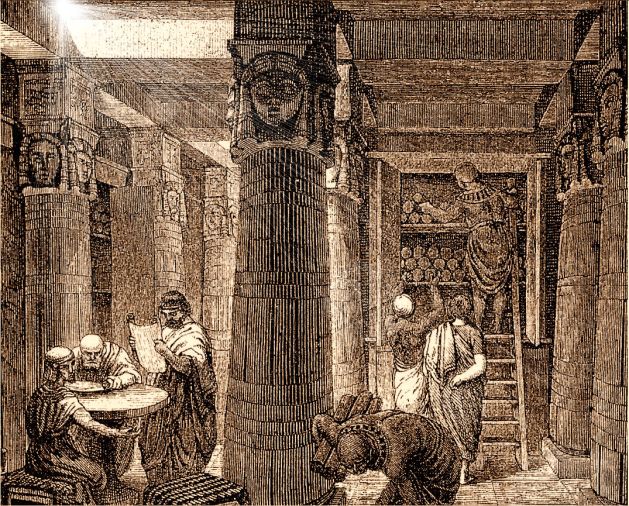Simply as a matter of copyright law, I’m afraid that the Internet Archive — one of the most valuable corners of the internet — is about to fall off a cliff, taking with it our access to countless old websites, newspapers and other content.
Let me explain. On Monday, a federal judge in Manhattan heard opening arguments in a lawsuit brought by four major book publishers who argue that the Internet Archive is violating copyright law by digitizing books in its possession and lending them for free. Blake Brittain reports for Reuters that the proceedings did not appear to go well for the Archive, with U.S. District Judge John Koeltl asking “pointed questions.”
“You avoid the question of whether the library has the right to reproduce the book that it otherwise has the right to possess, which is really at the heart of the case,” Koeltl reportedly told the Archive’s lawyer, Joe Gratz. “The publisher has a copyright right to control reproduction.” Yikes.
The Archive ramped up its lending during the COVID-19 pandemic and has not cut back even though life has more or less returned to normal. The Archive argues that it’s doing what any library does — it’s lending books that it owns, and it’s controlling how many people can borrow a book at any given time. In other words, it’s not simply making electronic versions of its books available for mass download. That may show some desire to act responsibly on the Archive’s part, but that doesn’t make it legal.
By contrast, a library typically buys one or more hard copies of a book and lends them out, or buys the right to lend e-books to its patrons. The operative word in both cases is “buys.” Money changes hands. Publishers and authors are compensated. Buying a hard copy of a book, digitizing it without any additional payment, and then lending it out is illegal, regardless of whether the lending is controlled or not. I find it kind of stunning that the Archive would put its entire free service at risk over such an obviously wrong stand.
“If this conduct is normalized, there would be no point to the Copyright Act,” Maria Pallante, chief executive of the Association of American Publishers, told (free link) Erin Mulvaney and Jeffrey A. Trachtenberg of The Wall Street Journal. Indeed, the Journal story notes that Google won its own legal battle over Google Books only by limiting what you can find to snippets of books, not the entire text.
I should point out that the Archive is not without some powerful friends of its own. The Electronic Frontier Foundation is providing legal assistance. In addition, Inside Higher Ed published a commentary written by a number of Archive supporters who argue that the Archive is a legitimate library, and that its “controlled digital lending” system, which limits lending to one user at a time, is covered by the fair use provision of copyright law.
“The argument that the Internet Archive isn’t a library is wrong,” according to the Inside Higher Ed essay. “If this argument is accepted, the results would jeopardize the future development of digital libraries nationwide.”
Oh, and by the way: Inside Higher Ed limits users to five free articles a month before you have to pay for a subscription — which, of course, it has every right to do.
I looked up my own books and found that two of the three, “Little People” (2003) and “The Wired City” (2013), are available for borrowing. I don’t mind. Whatever economic value they had has long since expired, and if someone would like to read them for free without using a traditional library, that’s fine. But I certainly would have objected during the first couple of years after they were published. Rodale paid me a decent advance for “Little People,” which funded the time off I took in order to research and write it. “The Wired City” was published by the University of Massachusetts Press, an academic publisher that survives from sales to libraries, both in hard copy and electronic form.
The Internet Archive is a godsend. Just recently I used it to look up the original version of a New York Times editorial that prompted Sarah Palin’s unsuccessful libel suit. The Archive has also digitized nearly every print edition of The Boston Phoenix through an arrangement with Northeastern University, which holds the copyright thanks to the generosity of Stephen Mindich, the late publisher. Along with Wikipedia, the Archive is one of the last uncorrupted places on the internet.
Ideally I’d like to see the Archive work out an arrangement with the book publishers that might limit but not shut down its book-lending program. My fear, though, is that this is headed for a very bad end.









